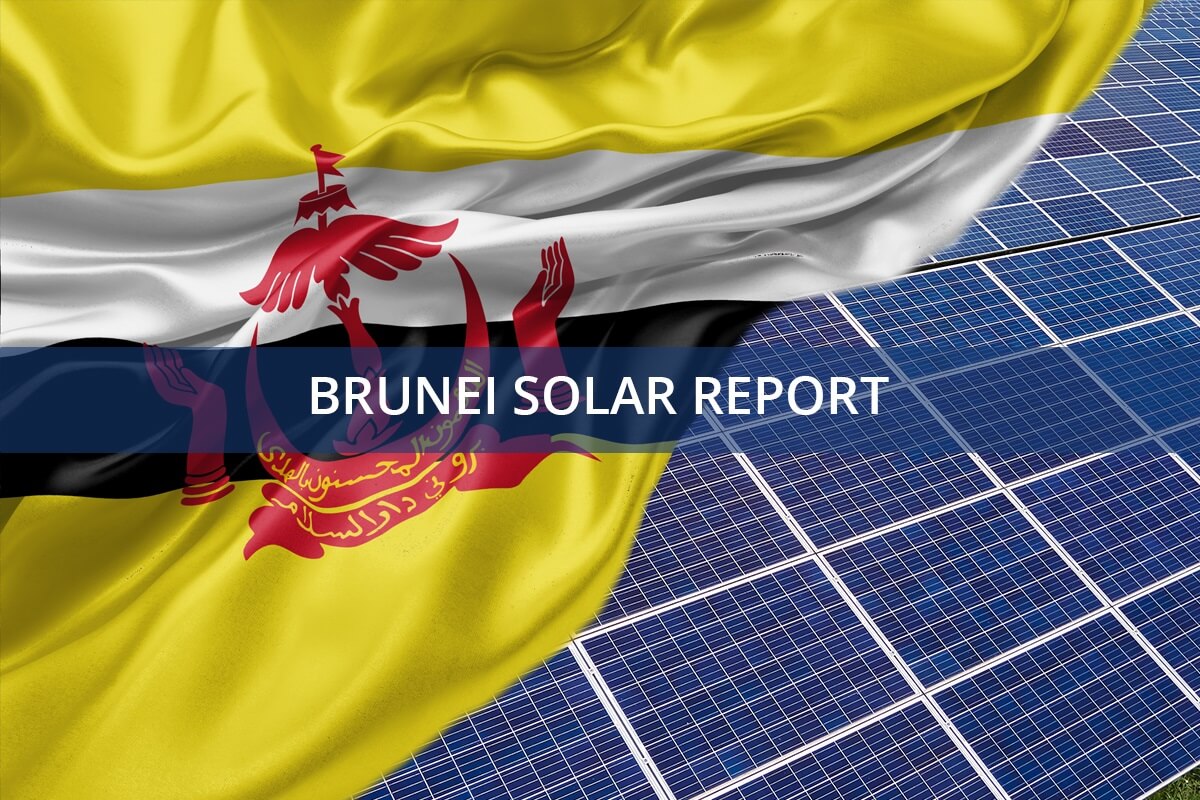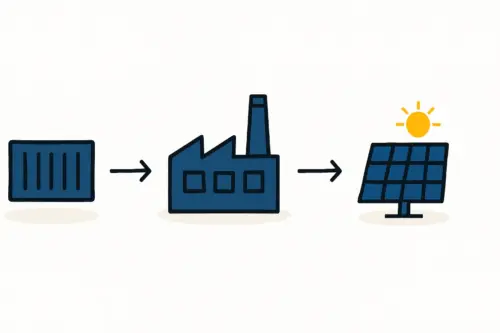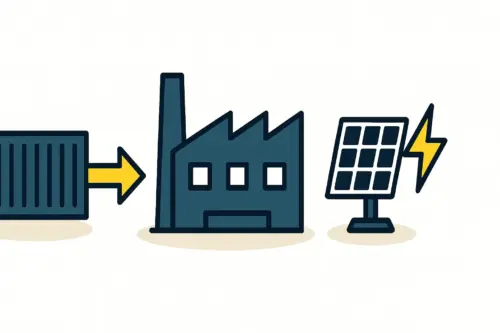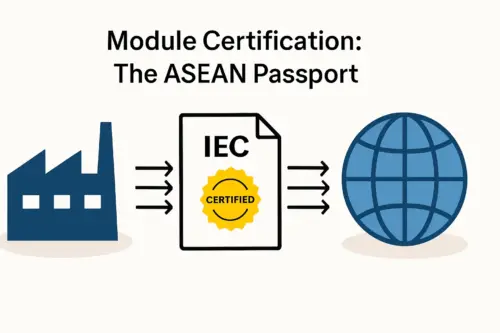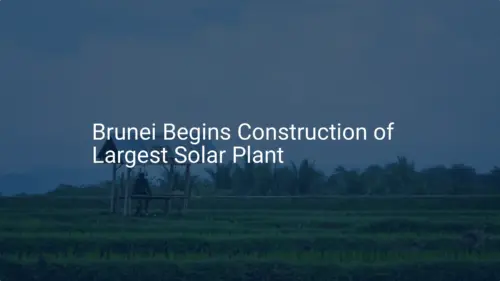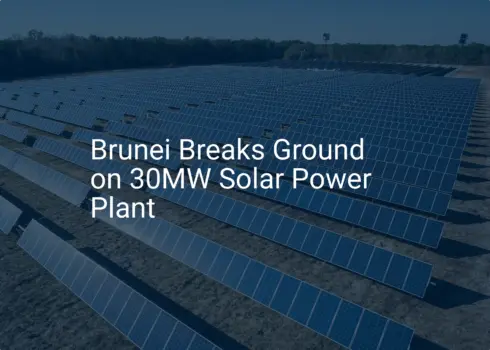An economy built on oil and gas may seem an unlikely market for solar energy. Yet for a nation like Brunei, this dominant industry presents a compelling business case for a local solar module factory.
The realities of operating offshore platforms and remote onshore facilities create a high-value niche where specialized, locally produced solar panels can solve financial and logistical challenges that standardized imports cannot.
This analysis explores the feasibility of supplying solar modules to Brunei’s oil and gas sector, a unique domestic opportunity aligning national energy goals with the commercial interests of the country’s primary economic engine.
Table of Contents
The Core Challenge: Powering Remote and Offshore Operations
Brunei’s oil and gas industry, the backbone of its economy, relies on a network of offshore platforms and remote onshore processing facilities. These operations are energy-intensive and geographically isolated, creating a persistent challenge: how to power them reliably and cost-effectively.
For decades, the standard solution has been diesel or natural gas-powered generators. While effective, this approach carries substantial, often hidden costs:
- High Operational & Maintenance (O&M) Costs: Generators are complex machines requiring constant maintenance, specialized technicians, and a steady supply of spare parts. In a remote offshore environment, these O&M activities become dramatically more expensive.
- Complex Fuel Logistics: Transporting diesel or gas to offshore platforms is a continuous, costly, and high-risk operation, vulnerable to weather disruptions and carrying the environmental risk of fuel spills.
- Emissions and ESG Pressure: As global stakeholders and investors focus on Environmental, Social, and Governance (ESG) metrics, oil and gas companies face increasing pressure to decarbonize their operations. On-site combustion for power generation is a direct source of emissions that conflicts with these goals.
These factors combine to create a significant operational burden, turning the simple need for electricity into a major cost center and a logistical bottleneck.
A Strategic Solution: The Role of Locally Produced Solar PV
Solar photovoltaic (PV) systems offer a direct and practical solution. Instead of replacing generators entirely, solar PV creates a hybrid power system that significantly reduces their workload, leading to immediate and long-term benefits.
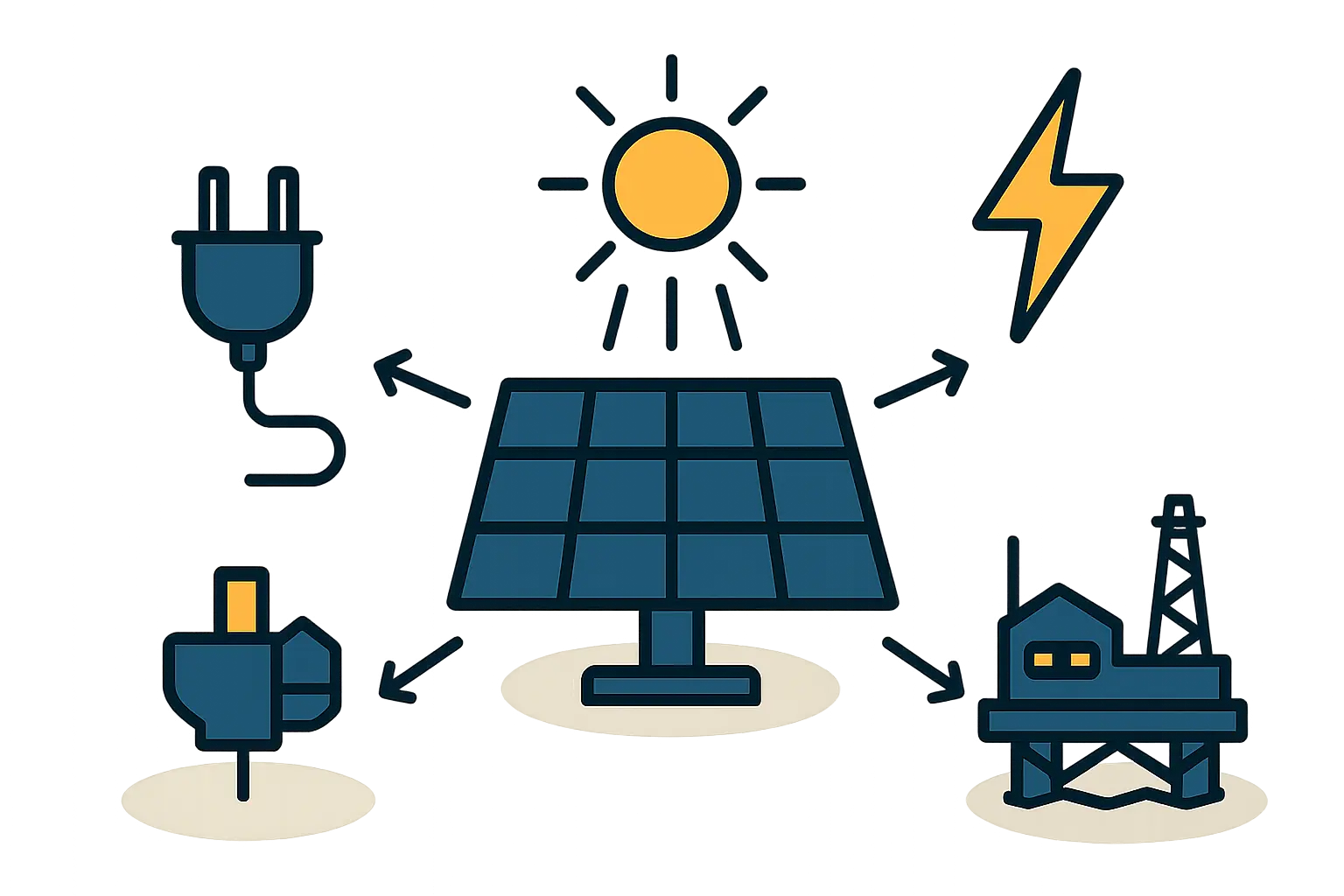
The financial logic is compelling. By supplementing conventional generators, solar power drastically cuts fuel consumption—often the largest single operational expense. With fewer moving parts, solar panels require minimal maintenance, further reducing O&M budgets over their 25-plus-year lifespan.
This is not a theoretical concept. Major industry players are already embracing this model. Brunei Shell Petroleum (BSP), for instance, has installed a 3.3 MWp solar plant at its headquarters—a clear signal that the industry recognizes solar energy as a viable tool for improving operational efficiency and meeting sustainability targets.
The Unique Advantage of a Domestic Solar Module Factory
While importing solar panels is an option, establishing a local manufacturing facility in Brunei offers distinct strategic advantages that create a powerful business case. The opportunity lies not in competing with global mass producers on price, but in serving a specialized, high-value niche with precision.
1. Customization for a Harsh Marine Environment
Offshore oil and gas platforms are among the most challenging environments for industrial equipment. Standard solar modules, designed for residential rooftops or benign desert conditions, are often unsuitable. A local factory can engineer and produce modules specifically for these conditions:
- Corrosion Resistance: The salt-laden, humid marine air is highly corrosive. A domestic manufacturer can build modules with specified corrosion-resistant materials—such as higher-grade anodized aluminum frames and specialized junction boxes—to ensure longevity.
- High Wind Loading: Offshore structures are subject to extreme wind speeds. Locally produced modules can be designed and certified to withstand higher mechanical loads than standard panels.
- Safety and Certification: O&G facilities operate under the strictest safety protocols. A local factory can work directly with industry clients to ensure its products meet specific certifications for use in potentially hazardous environments.
2. Meeting National Content and Policy Goals
The government of Brunei has set a target of achieving 10% renewable energy in its power generation mix by 2035. A domestic solar factory directly supports this national vision. Major operators like BSP also often have mandates to support local content and develop in-country value. A factory that produces “Made in Brunei” solar modules becomes a strategic supplier, well-positioned to win long-term contracts.
A local factory, particularly one set up with a turnkey solar panel production line, enables this level of specific product development and national alignment.
3. Supply Chain Resilience and Agility
Relying on international supply chains introduces risks of shipping delays, geopolitical disruptions, and logistical complexities. A domestic manufacturer provides supply chain security. It can deliver products faster, respond more quickly to client needs, and eliminate the uncertainties of global freight—a critical advantage for a mission-critical industry like oil and gas.
Assessing the Investment and Business Model
An entrepreneur considering this opportunity should begin with a detailed feasibility study. A robust solar manufacturing business plan is essential to model costs, revenues, and profitability. While the initial cost of setting up a solar panel factory is significant, the target market—the oil and gas sector—offers high-value, long-term contracts that can provide a stable revenue foundation.
The manufacturing process involves specialized equipment, from the initial solar cell stringer machine that assembles the cells to the final lamination and framing stages. Understanding these technical requirements is a crucial part of the planning phase. Experience from turnkey projects shows that a well-planned facility can become a cornerstone of the country’s energy transition.
Frequently Asked Questions (FAQ)
Q: Why would an oil and gas company invest in solar energy?
A: The motivation is primarily commercial and strategic. Solar power reduces high operational costs (fuel and maintenance) for remote facilities, improves energy reliability, and helps the company meet its ESG targets, increasingly important for investors and regulators.
Q: Are standard solar panels not suitable for offshore use?
A: While they can be used, they are not optimal. Standard panels are not designed to withstand the highly corrosive salt mist and extreme wind loads found in marine environments. Specialized, corrosion-resistant modules offer a much longer operational life and better return on investment in these conditions.
Q: What is the primary market for a new solar factory in Brunei?
A: The initial, high-value anchor market would be the oil and gas sector’s remote and offshore operations. Once established, the factory can diversify to supply modules for utility-scale solar farms, commercial rooftops, and residential projects, helping Brunei meet its national 10% renewable energy target by 2035.
Q: How can a local factory compete with large international manufacturers?
A: A local factory competes not on the price of a standard module, but on value and specialization. It wins by offering customized, highly durable products tailored to the O&G industry’s needs, providing supply chain security, and helping clients meet local content requirements. It serves a niche that large-scale producers often overlook.
Conclusion and Next Steps
The business case for a solar module factory in Brunei is not about competing with its legacy energy sector; it is about serving it. The country’s oil and gas industry is the perfect foundational customer, with clear needs that a specialized local manufacturer is uniquely positioned to fulfill.
This opportunity offers a strategic path for industrial diversification, creating skilled jobs and building in-country technical capacity. It transforms the nation’s primary industry from a consumer of energy into a catalyst for its renewable future.
For entrepreneurs and investors exploring this potential, the next step is a comprehensive feasibility study. A successful venture will be built on a deep understanding of the specific technical requirements and market dynamics unique to Brunei’s energy landscape.


